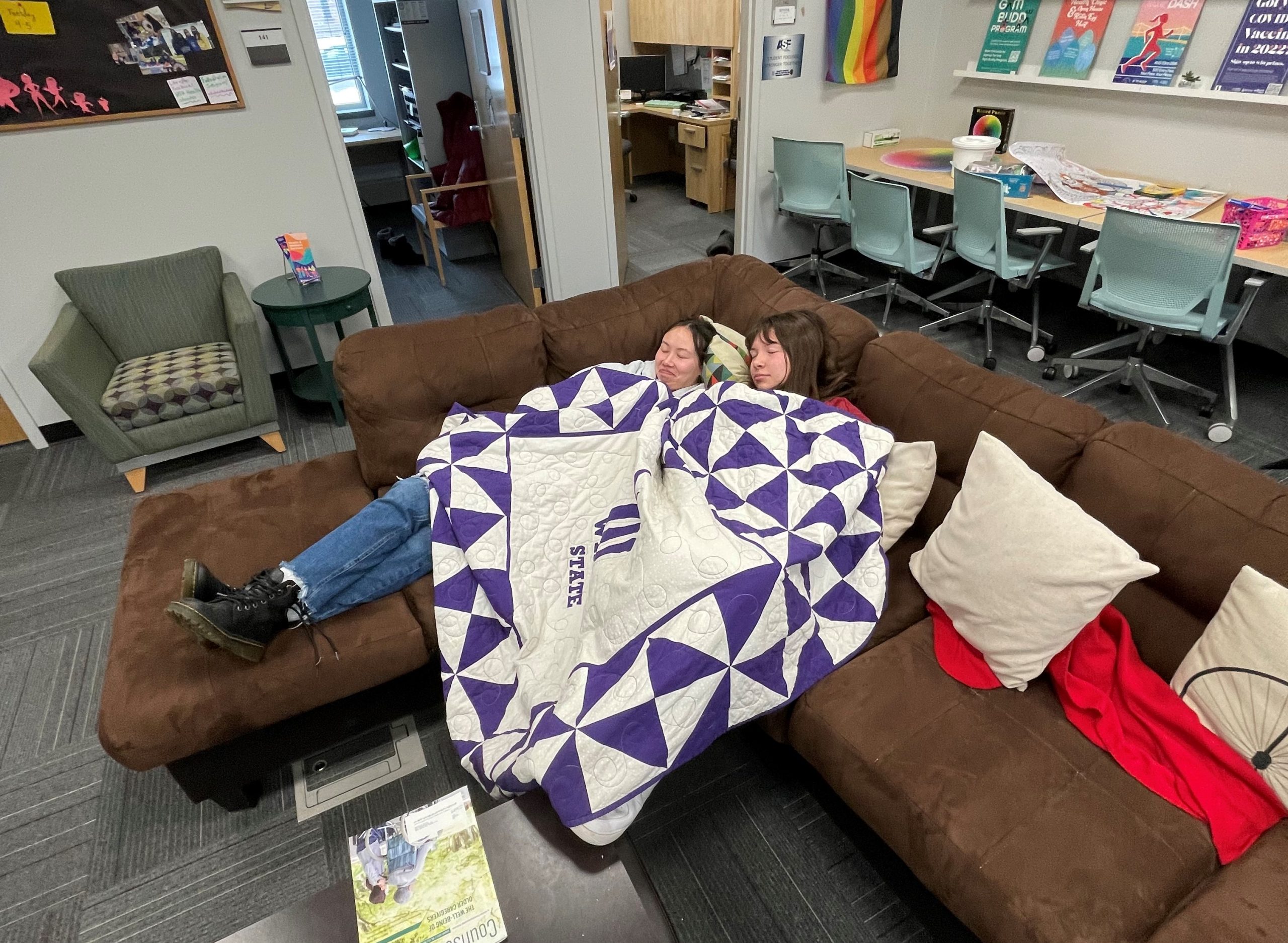
Whether you’re a college student, professor or just simply a human being, sleep is an essential part of life.
Getting 7-9 hours of sleep as a young adult each night is extremely important, but as a college student, school and work can complicate reaching the recommended sleep time.
What is sleep deficiency?
Sleep deficiency is what occurs when an individual doesn’t get enough sleep. This can look different to each person, whether it be going to bed too late, or getting the ideal amount of sleep, but the quality of the sleep is poor. According to the CDC, 1 in 3 adults do not get enough sleep each night and therefore fall into sleep deprivation. Not getting enough sleep each night can begin to interfere with your work life, ability to focus, mental health, immune system, nervous system, and so much more.
Playing Catch Up
It’s obvious to see sleep is important, but it’s harder to put into practice. As busy college students, it’s natural to fall behind on sleep here and there, and a nap can seem like the perfect way to catch up. The process of catching up on sleep is gradual, and a daily practice.
Getting into a sleep schedule and sticking to routine is the most important. Adding an extra hour of sleep each night over a few nights is a more effective way to catch up on sleep if you find yourself feeling sleep deprived.
Tips For Sleep
- Create a calming and consistent bedtime routine
- Nap only for 30 minutes or less each day – I know, it’s tempting to sleep for longer
- Keep your bed for sleeping only. Do not study, read, or watch TV in your bed (not even Netflix!)
- Avoid stimulants such caffeine or nicotine after 2 pm
- Exercise during the day
- Put your electronics away before bed
- If you can’t fall asleep, get up and do a calming activity such as reading or light stretching
All-nighters: yea or nay?
Pulling an all-nighter once might seem safe and might seem like the best option to finish some last-minute homework, it has a really big impact on your body and mind. Being a college student, your brain is being used all the time for class and homework, and the day after an all-nighter will prove difficult. The symptoms of sleep deprivation will likely kick in and the focus and concentration needed for class will likely be minimal.
Not sleeping all night can also really impact your driving. The inability to focus and concentrate can lead to impairment when driving, and the likely hood of falling asleep at the wheel increases drastically. According to Inverse, driving when sleep deprived can have the same effects as driving above the legal limit and has led to many fatal car accidents.
If you are finding yourself having to choose between sleeping an extra hour or cramming in an extra hour of studying at night, choose the extra sleep, your brain and body will thank you.
Assessing Your Sleep
For more personalized tips on how to maximize sleep benefits, take a sleep assessment online. It’s a confidential and anonymous, and absolutely free. It only takes 30-45 minutes to fill out. After you have filled it out, it will give you tailored answers on how to improve your sleep.
We spend a good portion of our days asleep and clearly it is an important activity. As college students, we don’t need to add more stress to our plates. Studying and social lives are important, but getting a good night’s sleep should be toward the top of the to-do list.
If you continue to have issues sleeping, you can make an appointment with WSU Health, Counseling & Wellness Services. To make an appointment, call 507.457.5160
Author: Kailee Johnson